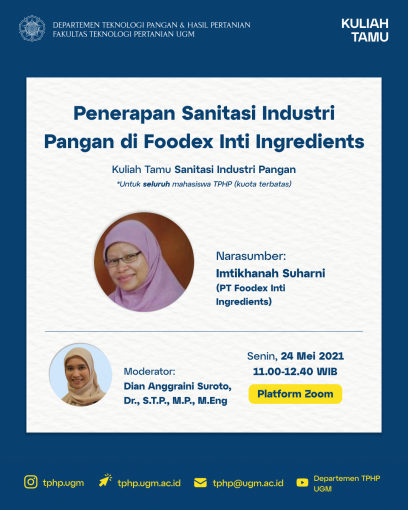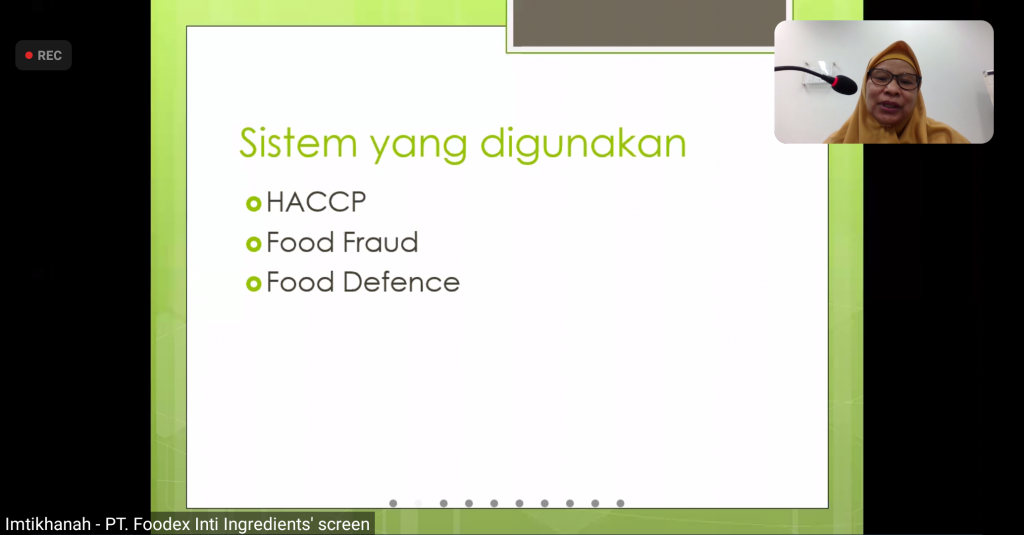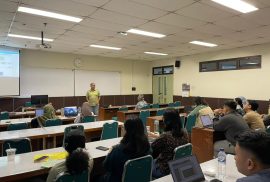
The Food Industry Sanitation course held a guest lecture on Monday, May 24, 2021 at 11:00 – 12:40 WIB. This guest lecture carries the topic of the Application of Food Industry Sanitation at Foodex Inti Ingredients with the speaker, Imtikhanah Suharni from PT Foodex Inti Ingredients and guided by Dian Anggraini Suroto, S.T.P., M.P., M.Eng., Ph.D. as moderator. This guest lecture was held through the Zoom platform and attended by 105 participants.
Industrial sanitation is a series of activities or practices that aim to protect the health and safety of workers and consumers. The scope of industrial sanitation includes workers and the work environment, equipment, and prevention systems.
Sanitation for workers and the work environment includes clean body, clean hands, clean clothes, and clean from wounds and diseases. Every worker and work environment must be ensured cleanliness so that products are kept clean and avoid contamination with germs, diseases, or dirt that can cause consumers to be poisoned or sick.
Sanitation for machinery and equipment consists of cleaning and sanitizing processes. The cleaning process is an activity to remove visible dirt (physical dirt), allergenic materials, and visible particles of food waste on the surface. The cleaning process consists of dry cleaning (using compressed air and vacuum pumps) and wet cleaning (using water and detergent). Meanwhile, the sanitization process is the process of reducing the total microbes in machines, tools, and rooms to a specified limit. This sanitization process is carried out using alcohol, hot water, chemicals, and UV light.

In addition, a control system is also needed so that the products produced can avoid contamination. The necessary control systems include HACCP, VACCP, and TACCP. HACCP (Hazard Analysis Critical Control Point) is needed in controlling hazards or physical, chemical, and microbial contamination. VACCP (Vulnerability Analysis Critical Control Point) is required in the control of food fraud or intentional substitution, addition, subtraction, or destruction of food and beverage ingredients that can impact consumer health. TACCP (Threat Analysis Critical Control Point) is required for the control of food defense or processes to ensure the safety of food and beverages from any form of deliberate criminal attack, including ideologically motivated attacks leading to contamination (bioterrorism).
The Food Industry Sanitation Guest Lecture video can be accessed via the following link:
[embedyt] https://www.youtube.com/watch?v=QArg6Kqqd2g[/embedyt]




